Knives and forks akimbo. Napkins scrunched into leftover soup. Diners wandering around the restaurant while on the phone.
Restaurateur Angie Giannakodakis has witnessed it all in a hospitality career that's spanned 33 years and, in her estimation, has seen her serve "four MCGs" of diners in Melbourne.
But in the past few years, Giannakodakis has noticed an upsurge in diner behaviour that's made it harder for her to deliver the kind of seamless, joyous experiences that make people fall in love with fine-dining restaurants and, along the way, give waiters the satisfaction of having served up happiness along with scallops, steak and souffle.
Giannakodakis isn't sure if it's to do with the casualisation of dining, the demise of family mealtime or a rushed click-and-eat culture, but she does know she wants to do something about it. So she's launched Restaurant School classes to teach people how to be better diners. 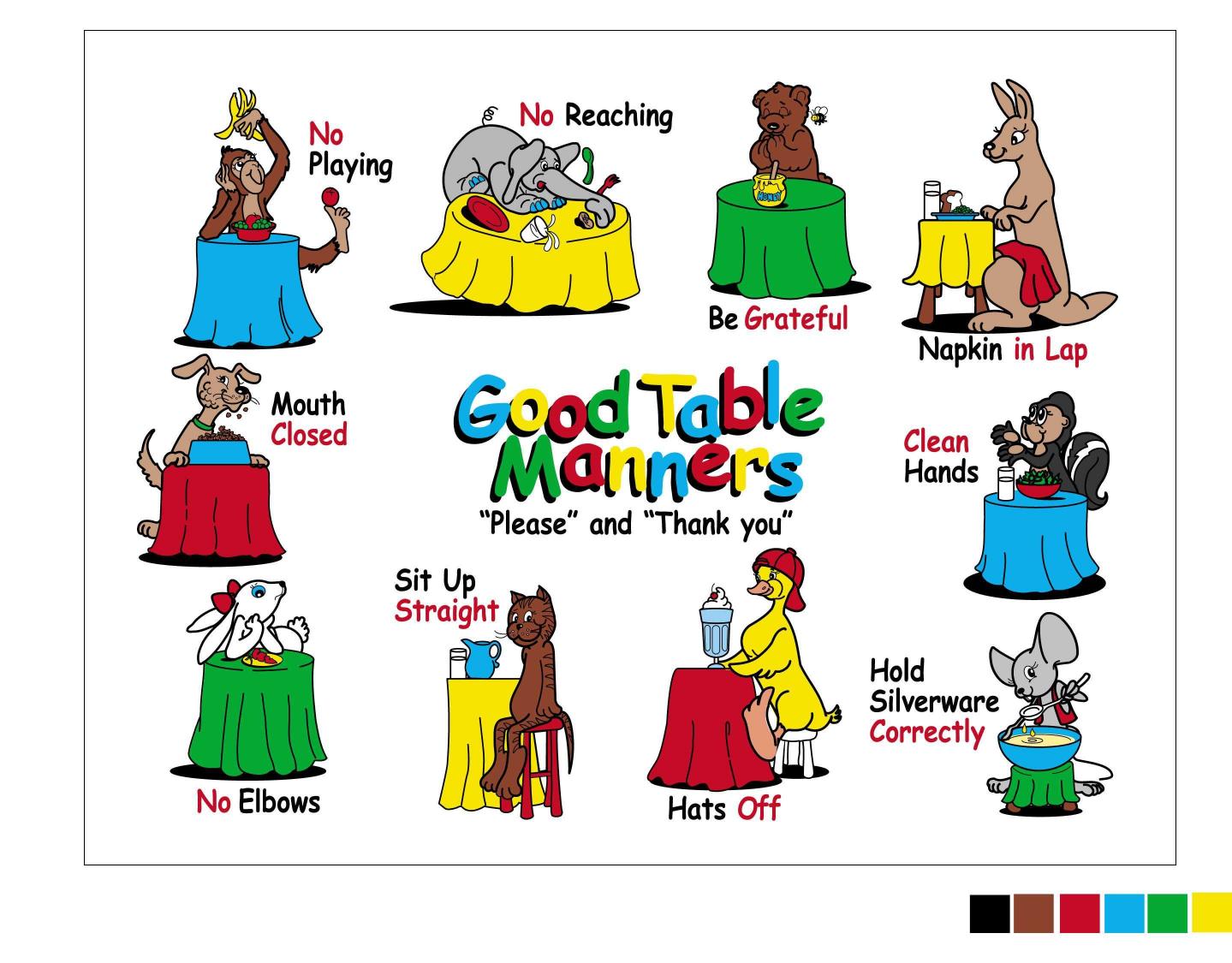
The first class took place on Saturday at Epocha, her graceful Carlton restaurant. At the two-hour class, participants were instructed in dining codes such as which cutlery to use (start at the outside and work in), how to hold a wine glass (by the stem, not the bowl) and how to pay the bill in a nice restaurant (at the table, not standing by the door).
Participants – including Ann Brady, a keen diner who brought Lani, her eight-year-old granddaughter – heard about chewing gum under the table (cleaning it up is a weekly job), how to set a table properly, and that it doesn't help your waiter if you stack plates.
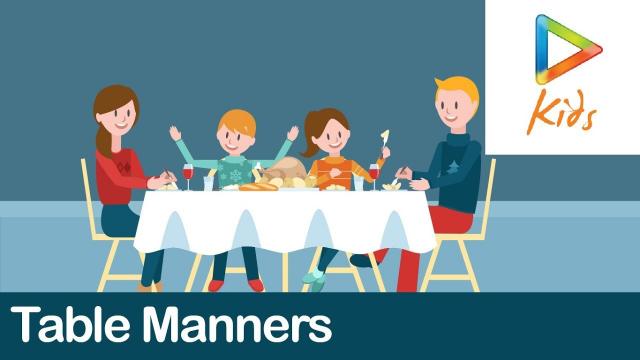
"This is not about shaming people," Giannakodakis says. "This is about helping diners learn how restaurants work so that they can have a better experience.
"If someone doesn't know to put their knives and forks together to signal that they've finished a dish, then we have to watch them, ask them, disturb them before we can clear their plate.
"We see some customers get visibly annoyed about it, whereas 10 years ago we didn't have that issue."
Customers stacking plates actually slows us down – we don't stack plates like you do, and it means we have to come to the table twice.
"And if we have 25 per cent of diners standing up to pay the bill, it changes our workload. You might be pouring someone's wine but you have to stop what you're doing and get the EFTPOS machine."
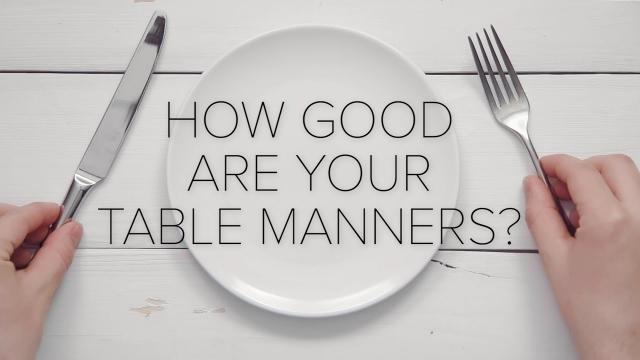
This extra work means service staff have less time to deliver the special touches that turn a feed into a five-star rhapsody.
"We want to nurture diners, not second-guess them or control them," Giannakodakis says."We want that beautiful interaction, that warm expression of humanity that can happen in a restaurant.
"If diners don't understand what we do and don't value it, then we are going to lose our restaurants."
Dining do's and don'ts.
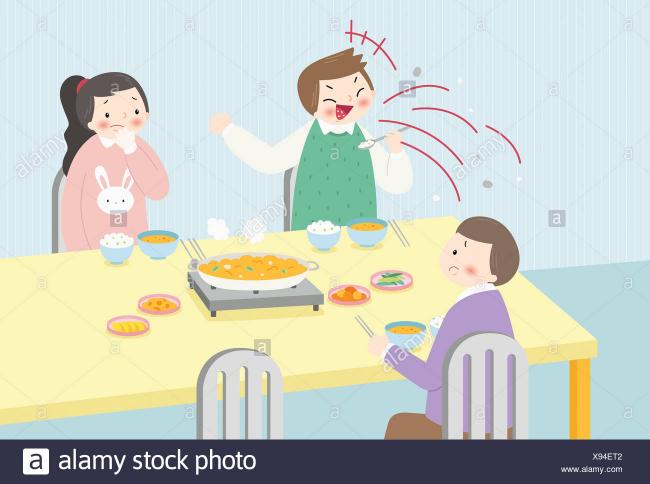
A good diner does:
Let the restaurant know in advance if they have dietary needs or a special occasion to celebrate
Consider their time of booking: if you'll be 'hangry' by 7pm, book dinner at 6pm, not 8.30pm
Keep the reservation and call ahead if running late
Wait at the door to be greeted and shown to a table
Put knife and fork together on their plate when finished with a dish
Ask the waiter for assistance rather than Googling unfamiliar words on a menu or looking up the wine list
Keep the napkin in their lap then fold it neatly to the side of the plate when finished

A good diner does not:
Push cutlery and plates to the centre of the table in order to plonk elbows in their place
Use all the cutlery for the first dish
Touch service staff, swear or ask a waiter what they really want to do with their life – it's hurtful to career waiters. "There's no more honourable trait than to look after a fellow human being," Giannakodakis says
Mop up spillages with cloth napkins; instead, signal to a waiter who is better placed to deal with it
Leave a negative online review before speaking to the restaurant to allow them to remedy the situation.
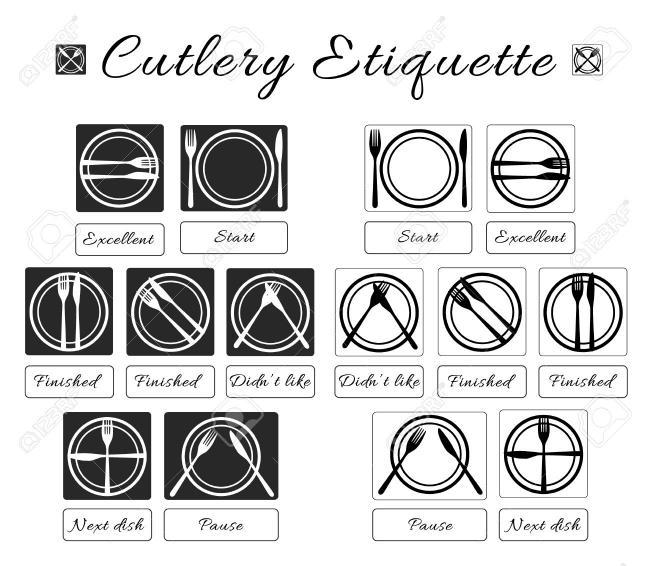
So, can we use the phones during a dinner?
Many of us have experienced lovely gatherings jarred by the beeps and buzzing of nearby phones.
The alerts are irritating enough, but even more so when texts, calls or FaceTime invitations are answered, and the guest is no longer participating in the meal.
It's not hard to slide down the slippery slope of phone zone-out. We've all seen it happen. Someone went to a lot of trouble cooking a lovely meal and setting a nice table to bring friends together for a relaxing evening.
Because so many of us eat on the go or while watching Netflix, actually sitting down and sharing a meal with friends is a cherished and powerful ritual that occurs far less frequently these days.
But is it OK to put your phone on the table at a dinner party?
No. There is no place at a place setting for your phone. The dinner table is the most important social ritual that we engage in with others. We should concentrate on that. Phones should be off. 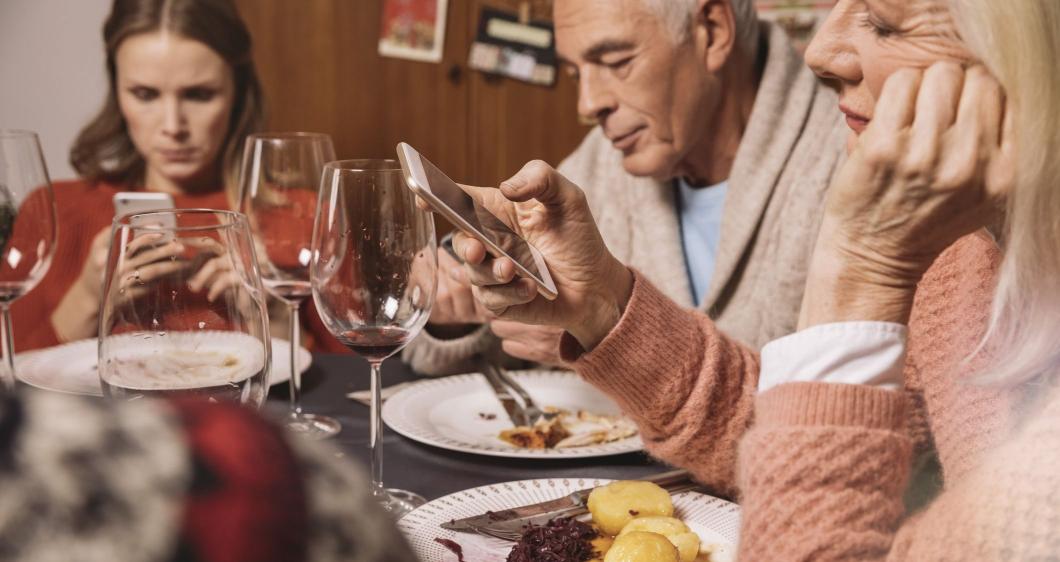
Are rules still evolving?
Yes, but I say that cautiously. They shook out years ago. It didn't take long for people to start thinking that they didn't want their phone to be an imposition, and you needed to shut it off at a theatre or restaurant. And also where there is a captive audience, such as in an elevator or at a dinner table. If people can't get up and leave, you don't subject someone to half a conversation.
You might be hosting a journalist on deadline who is expecting a call from an editor. How should this guest handle this?
If it's important enough that you would be stepping away from the dinner, let your host know ahead of time. Say, "I'm expecting a call from my editor so you might see me checking my phone occasionally. But when I need to make a call I will go into another room." This shows consideration and respect, self-awareness, and awareness of others.
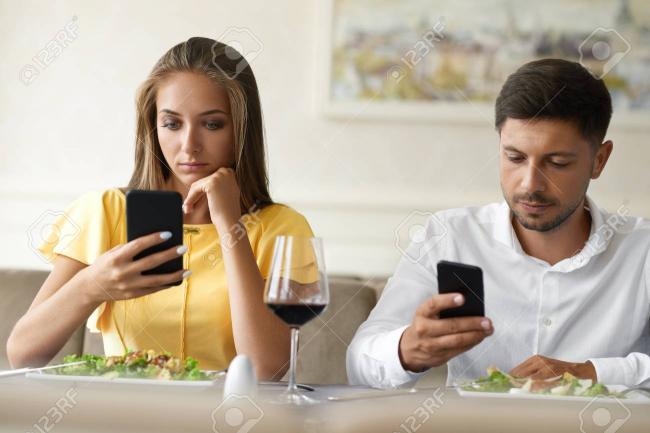
What about smartwatches?
It's less obtrusive to look at a watch, yes. But back in the day, there were these manners about being careful about obviously checking your watch. This was considered rude, like you were getting bored. Sure, if you see that email and an alert and it's not distracting to other people. If it's there on your wrist, OK. But don't start interacting with it.
What about offering guests a five-minute tech break before dessert?
It's better than the alternative, which is everyone being on their phones all night. If you consider that good hosting for your guests, and it makes people feel comfortable, then do it.
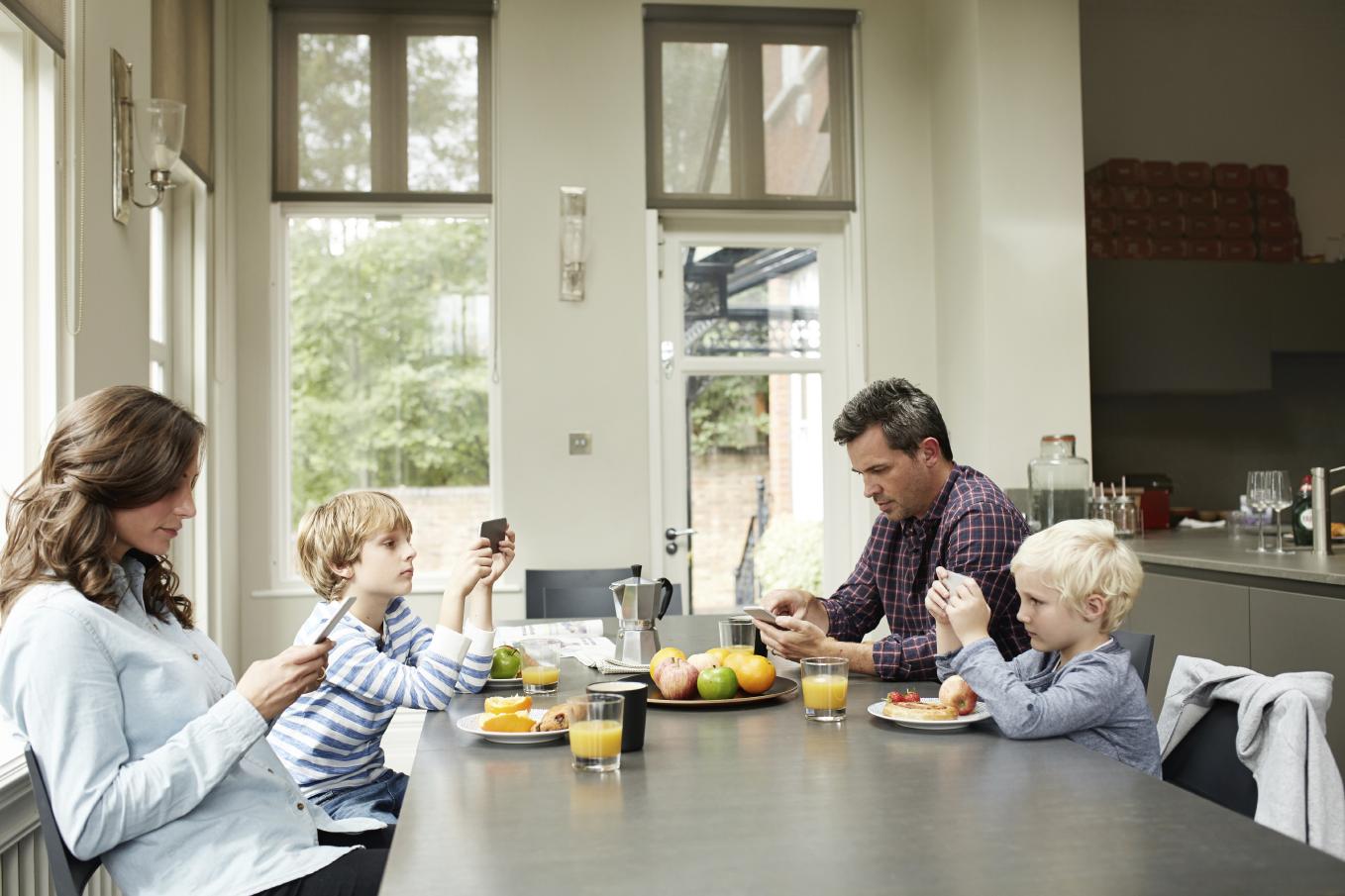
What do you consider "turning off" your phone if you don't want to just power it off?
To silence your iPhone, you should turn the ringer off using the button on the side and turn off the vibrate function in settings, or you should turn on the "do not disturb" mode.
What if you want to Google a fun fact at dinner?
Oh, like what was John Wayne's second movie? I'm of two thoughts - I love challenging people - the challenge of not knowing can be part of a good conversation. There might be a benefit in keeping the conversation going. However, I don't feel that it's rude to use a phone in the service of a shared activity. So I give an exception of the rule that asks you to stay off your phone at the table.
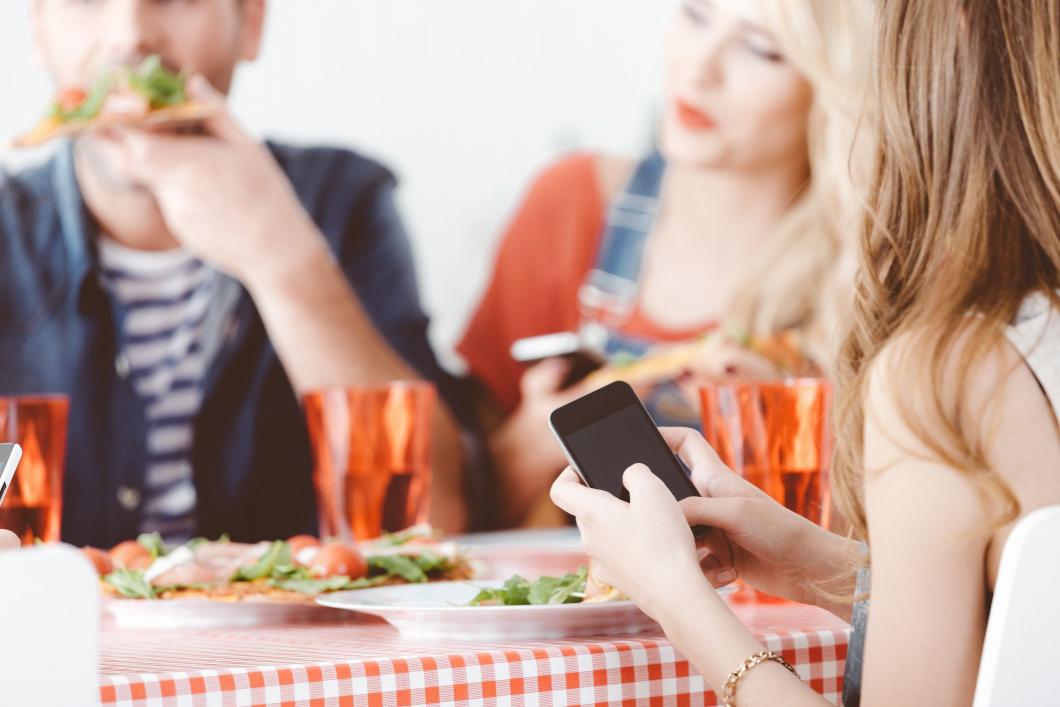
Would your advice be the same for millennials and boomers?
My advice would not change: Manners are situational. There are core principles for good etiquette that are consideration, respect and honesty. These apply for host and guests. The idea that you would get on your phone in the middle of a conversation, whether you are 24 or 54, is annoying.
Key Words
Australian table manner, Melbourne etiquette study
0Like
Report
Share
Related recommendation
- • 规范的酒店餐饮服务礼仪有哪些
- • 厦门形象礼仪圈发表“魅力女人情感语录”
- • 风尚圈服务礼仪培训的五大基本原则
- • 风尚圈带你感受刘雯的单眼皮魅力
- • 中国孩子天价学西式礼仪引争议
Latest News
- • 测试发布者
- • 测试发布者
- • 测试
- • 测试
- • 上海新闻测试
